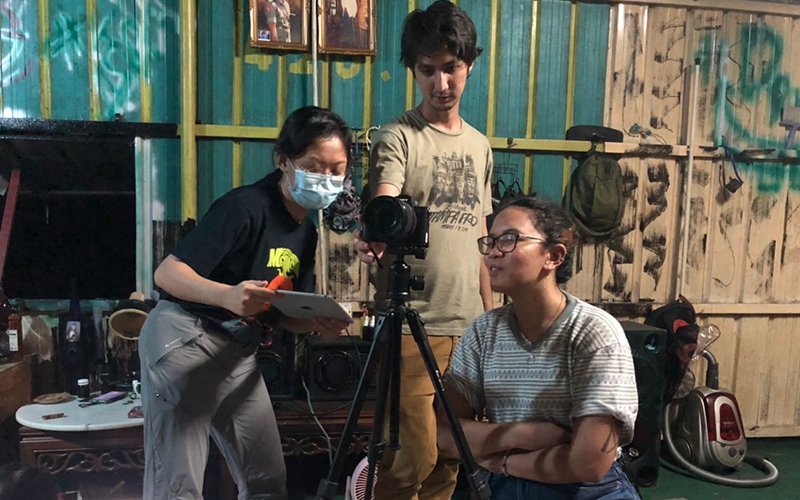PETALING JAYA: Cannabis users often get a bad rep. Lumped together with drug addicts, they are stigmatised and stereotyped by the public as lazy, irresponsible and even mentally unstable.
Above all, they are considered as criminals.
Amiruddin Nadarajan Abdullah has made the Malaysian public reexamine those stereotypes and rethink the value of cannabis as a medicine in a story that has grabbed national headlines for the past three years.
Detained in 2017 for allegedly mixing cannabis with honey, cakes and chocolates for medicinal purposes and selling them to terminally ill patients, the former armed forces captain — also known as Doctor Ganja (Dr G) — will face the death sentence if he is found guilty of trafficking cannabis.
Under the Dangerous Drugs Act, anyone found with 200g of cannabis can be charged for drug trafficking and sentenced to death.
Amiruddin was found with more than 97kg.
The 60-year-old also used cannabis to treat his own chronic illnesses after years of conventional medicinal treatment failed him, and the Malaysia Awareness Society (Masa) secretary Harish Kumar previously claimed that Amiruddin had helped over 800 people with cancer and other illnesses.
Around 40 former “patients” and well-wishers had gathered at the Klang court complex to show their support for Amiruddin during a trial in 2018.
He was charged with 36 offences related to the use, growth and possession of cannabis. Despite his deteriorating health, he remains behind bars at the Sungai Buloh prison, leaving an understandably deep mark on his family.
Filmmakers Loh Jo Yee, Hidayah Hisham and Dominique Teoh have detailed the personal challenges Amiruddin’s daughter, Siti, is going through in their documentary titled “Ayahku, Dr G”.
What started out as a story about the struggles and discrimination cannabis users face turned out to be much more than that.
“People will think of him as a drug lord, right? But he’s just another guy who is very passionate and vocal about what he is interested in,” said Loh.
“Maybe some people might think he is eccentric because he is very vocal, but, you know … that’s what an advocate is.
“We hope that perhaps with this film, we can sort of help people empathise more with situations like this.
“A lot of the aspects of the Dangerous Drugs Act, for example, and the effect of the law and health legislations… We do not see it directly, but through the eyes of Siti or her experience, we are able to feel what she feels.”
Dragged into the unfamiliar world of lengthy legal proceedings and prison visits, Siti is unrelenting in her quest to save her father from the death penalty while pushing through a system which regards drug users as second-class citizens.
Teoh said that while Siti had always been adamant that she is not ashamed to be Amiruddin’s daughter, the stigma surrounding drug use has left her worried about her job security.
“We have all these anti-drug campaigns… They are well-intentioned, but it’s not the best approach,” said Teoh.
“We really villanise, vilify these people but for a lot of them this actually needs to be treated as a health issue and not a criminal issue.”
While there has been a shift in policies regarding the medicinal use of cannabis across the world, such discussions remain taboo in Malaysia.
“For me, the real story was not just about decriminalisation … that’s one aspect of it. Another aspect of it are also our drugs laws,” said Teoh.
“The film provides an opportunity to look at all these issues inherent in our criminal justice system. For example, Dr G has spent over three years in prison, but he hasn’t been found guilty yet.
“That’s a product of our laws.”
As Amiruddin’s case is still ongoing, the filmmakers had to be cautious about the information they disclosed.
They worked closely with his lawyer, Ramkarpal Singh, and Sherrie Razak Dali, a lawyer who directed “Menunggu Masa” — a 2018 FreedomFilmFest documentary about a Malaysian who has been on death row for 16 years.
Hidayah pointed out that while the Pakatan Harapan government’s aim to decriminalise drug possession for personal use, before the end of its first term, failed to materialise, she felt it would be a shame if Malaysia were to eventually “one day decriminalise cannabis” while there were still prisoners facing the death penalty for such a crime.
According to Amnesty International, 1,281 people were on death row in Malaysia as of October 2019 and 73% were convicted of drug trafficking offences. While there is currently a moratorium on executions, there is undoubtedly untold emotional distress on these prisoners.
“If his story is discarded in this narrative of legalising or decriminalising cannabis, it’ll be a shame on us as a society. We can’t look back and say ‘We did a great job’, but left out these groups of people,” said Hidayah.
“Our goal with the film is just to try and push this story out to the public, to get them to be more aware of these existing problems.”
Like Teoh, Hidayah noted that the country’s anti-drug campaigns lean towards “fear-mongering” as opposed to a more holistic approach to the subject.
“Maybe just step aside from that and shift the perspective to: ‘These people have families; these people have kids; these people have mothers’,” said Hidayah.
“You don’t hear these stories… The personal side of these stories.”
“Ayahku, Dr G” premiered yesterday at FreedomFilmFest, an annual human rights documentary film festival that will run until Dec 13 this year.
Tickets are available for free at www.cloudtheatres.com.

